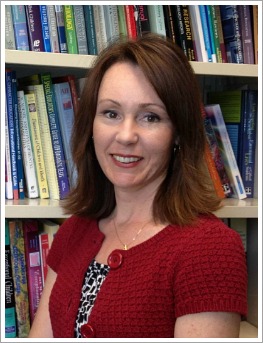A former elementary and middle school teacher explains how her advanced understanding of curriculum and classroom management helped lead to success in special needs students.
As an advocate for ongoing education, Barbara Mitchell understands the importance of earning an advanced degree.
“I think about the intricacies of teaching and learning, particularly for students who may struggle in some aspects,” Mitchell said. “You cannot possibly, in a four-year undergraduate degree, learn everything that you would need to know to be even just a minimally good teacher.”
Mitchell’s strong stance on continuing education is derived from years of experience teaching elementary and middle school students with disabilities. While her bachelor’s degree in elementary education helped qualify her to be a teacher, it wasn’t until graduate school when Mitchell truly felt she was learning applicable strategies and furthering her knowledge of content and classroom management.
“To think about the intricacies of teaching someone to read – you don’t have nearly enough time in the four years of your bachelor’s program to fully develop and understand what it takes someone to read,” Mitchell said. “And you only get one semester. I just can’t imagine being an effective teacher without continuing my education.”
6 Classroom management tips for teachers
- Be assertive and lead your class
- Ensure disruptive students stay on task
- Give students some freedom, let them choose their seats
- Provide incentives for good work on assignments
- Keep an eye on your students
- Be clear about consequences for bad behavior
Source: The National Education Association
Mitchell’s desire to be an effective teacher led her to earn a master’s degree in Curriculum and Instruction from the University of Missouri, where she specialized in Special Education. While she says her program consisted of several broad subjects, like advanced human learning and educational psychology, the program was heavily customizable, and allowed students to specialize in many different areas.
In her program, Mitchell was allowed to choose between a number of pathways to earn her degree. Specializing in Special Education and focusing in classroom management, Mitchell says her degree program gave her the knowledge needed to become an effective Special Education teacher.
“It’s an absolute shame that as an undergraduate student, I only got a little bit of information about classroom management,” said Mitchell. “It really wasn’t until I was a graduate student that I became fluent and then an expert in classroom management.”
Classroom management isn’t just making sure your students don’t misbehave – it’s about becoming organized in order to provide the best educational environment for your students. It’s about exploring different instructional techniques and setting clearly defined expectations and rules to prepare your students to learn. This includes anything from defined procedures for turning in homework, to procedures for going to the restroom, for seeking homework assistance, and for working in small groups.
Mitchell says sometimes teachers have organizational plans in their heads, but don’t explicitly state the plan. When teachers don’t use proper classroom management techniques, it’s up to students to figure out what their teachers want them to do. Working with students in Special Education, Mitchell found her focus on classroom management to prove invaluable.
“Students with learning disabilities need more explicit instruction in those kinds of things,” Mitchell said. “I worked with fifth grade students who had difficulties with reading – were there more effective instructional techniques I could use with these students so they could participate in fifth grade reading class? It’s about different instructional techniques for helping students participate in the instructional activities they have on a daily basis – helping those kids be successful.”
Mitchell believes that more teachers with advanced training in classroom management would mean less time wasted on the moments in school where students don’t learn anything. With all of the time spent lining up, taking bathroom breaks, or moving down the hallway, Mitchell says many teachers must improve their management in order to provide students as many opportunities as possible to learn.
In her degree program, Mitchell was able to apply these management and teaching strategies in her classroom and then report back to instructors and professors about their effectiveness.
Collaborating with her instructors and fellow classmates about teaching practices was hugely beneficial to Mitchell’s career. While in undergraduate school, students do receive teaching experiences, but Mitchell says it’s simply not enough.
“It’s not the same, because when you’re an undergraduate teaching, it’s not your classroom,” she said. “I had the liberty to take things that I was learning and try to apply them to my instructional setting. I think about an undergraduate degree – the first two years are just general requirements. You don’t even get into teaching until your junior and senior year. ”
As Mitchell integrated new techniques and policies in her classroom, she was able to see improvement first hand – and report back to her instructors about any new developments in her class’s behavior or learning accomplishments.
“Being able to talk about what I was experiencing in the classroom, the things that were going well, the things that were not going well…being able to come back and talk to instructors or professors or other educators was definitely a benefit,” she said.
Mitchell came to truly see the importance of her advanced education as she applied the techniques and policies she mastered in her special needs classrooms.
“Providing success for those kinds of students – kids who aren’t doing particularly well in school – was always really rewarding for me,” Mitchell said. “I was definitely not initially equipped to work with those students, it took a lot of extra education to think about how to help those kids be successful.”



